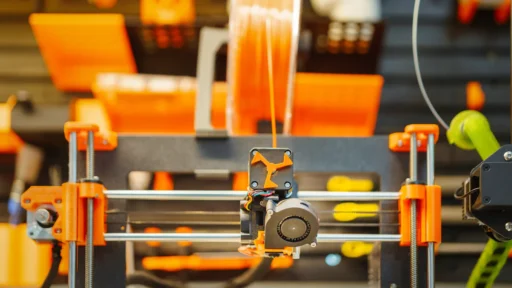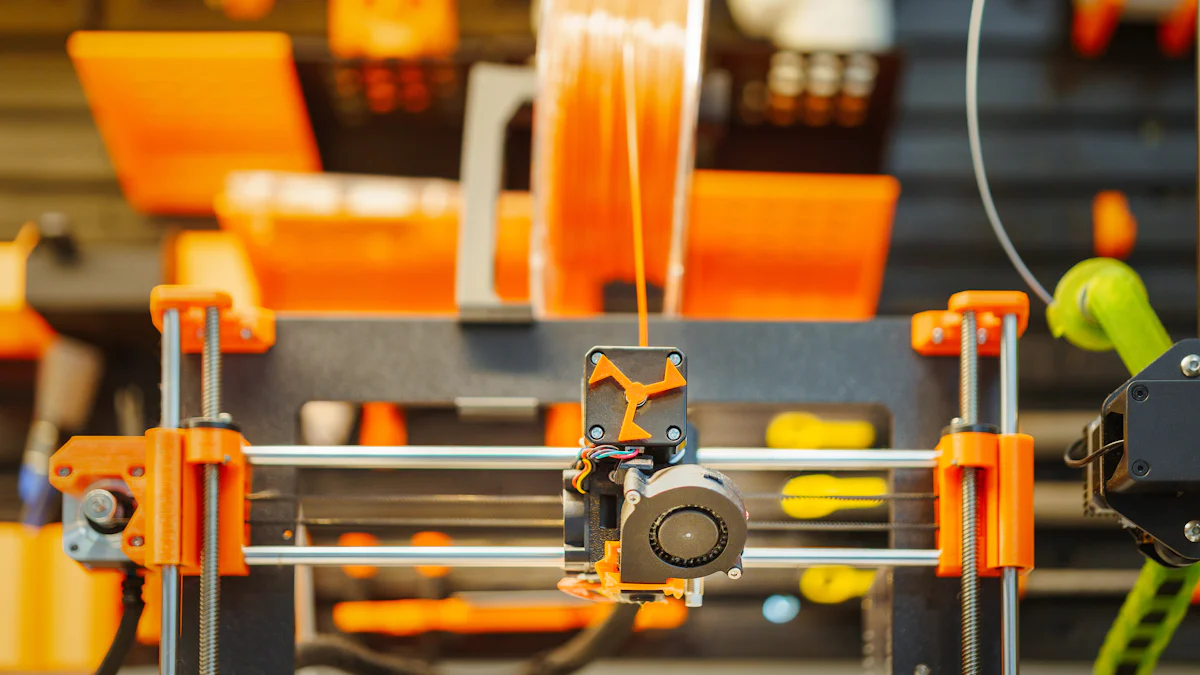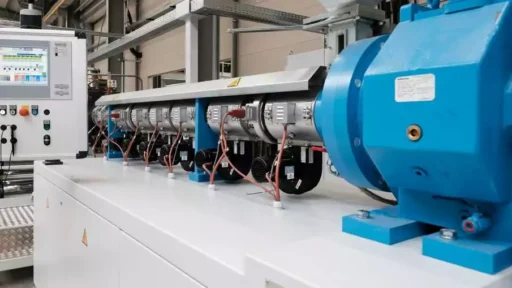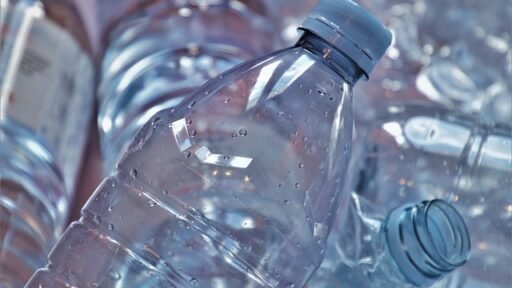Plastics extrusion machines play a crucial role in modern manufacturing. These machines transform raw plastic materials into usable products through a continuous process. The importance of plastics extrusion machines in manufacturing cannot be overstated. Industries rely on these machines for producing a wide range of items, from automotive parts to household goods. The market for plastics extrusion machines is growing rapidly, driven by increasing demand and advancements in technology. The global market size reached $13.29 billion in 2023 and is expected to grow annually by a significant rate.Understanding Plastic Extruder MachinesDefinition and Basic PrinciplesWhat is a Plastic Extruder Machine?A Plastics Extruder machine is a specialized device used in manufacturing to transform raw plastic materials into continuous profiles. The machine operates by melting plastic granules and forcing the molten material through a die to create specific shapes. The process is highly efficient and cost-effective, making it a preferred method for producing a wide range of plastic products.How Do Plastic Extruder Machines Work?Plastics Extrusion machines work through a series of well-coordinated steps. First, raw plastic granules are fed into a hopper. The granules then drop onto a rotating screw inside a heated barrel. The screw, powered by an electric motor, conveys the plastic through the barrel where it melts due to heat and compression. The molten plastic passes through a screen pack to remove contaminants before reaching the die. The die shapes the plastic into the desired form, which is then cooled and solidified.Types of Plastic Extruder MachinesSingle-Screw ExtrudersSingle-screw extruders are the most common type of Plastics Extruder machine. They consist of a single rotating screw that moves the plastic material through the barrel. These machines are known for their simplicity and cost-effectiveness. Single-screw extruders are ideal for straightforward extrusion processes where complex mixing is not required.Twin-Screw ExtrudersTwin-screw extruders offer numerous advantages over single-screw models. These machines feature two intermeshing screws that provide excellent compounding ability and easy material feeding. The twin-screw design ensures better and faster plasticizing capacity. Granular material stays in the extruder longer, allowing for thorough mixing, stirring, and kneading. This results in higher quality composite materials. Twin-screw extruders are highly productive and suitable for complex extrusion tasks.Ram ExtrudersRam extruders operate differently from screw-based machines. Instead of a rotating screw, a hydraulic ram pushes the plastic material through the barrel. This type of extruder is typically used for processing high-viscosity materials or for applications requiring high pressure. Ram extruders are less common but are essential for specific industrial applications.
The Extrusion Process
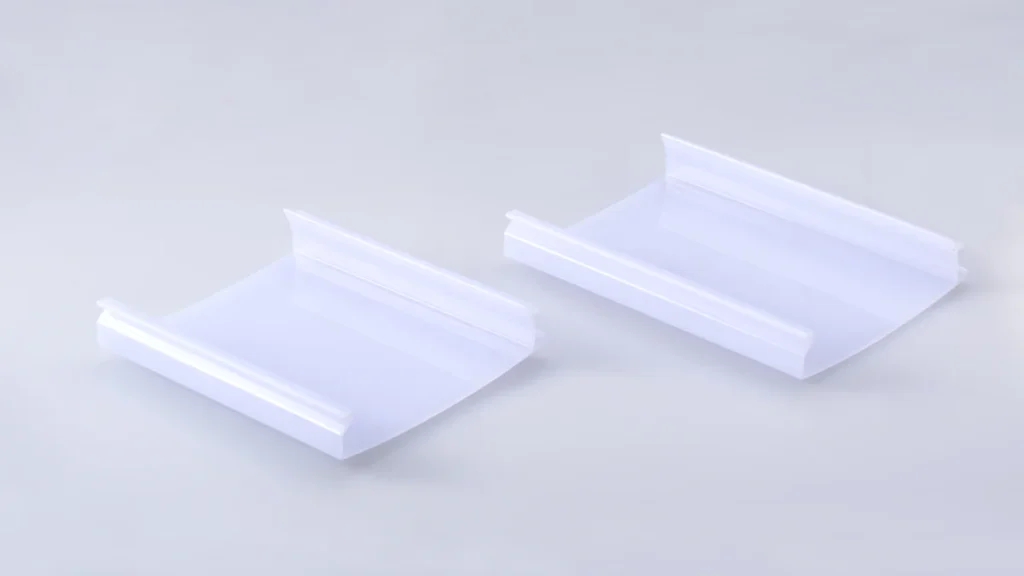
Steps in the Extrusion Process
Feeding
The Plastics Extruder machine begins the process with feeding. Raw plastic granules enter the hopper. The granules then drop onto a rotating screw inside a heated barrel. This step ensures a continuous supply of material for the extrusion process.
Melting
The next step involves melting the plastic granules. The rotating screw conveys the plastic through the barrel. Heat and compression gradually melt the plastic. This transformation from solid to molten state is crucial for shaping the material.
Mixing
Mixing follows the melting stage. The screw’s rotation ensures thorough mixing of the molten plastic. Additives and colorants blend uniformly during this phase. Proper mixing guarantees consistent quality in the final product.
Shaping
Shaping occurs after mixing. The molten plastic passes through a die. The die molds the plastic into the desired shape. This step defines the final form of the extruded product. Different dies create various profiles, such as tubes, sheets, or films.
Cooling
Cooling solidifies the shaped plastic. The extrudate exits the die and enters a cooling system. Water baths or air cooling methods are commonly used. Rapid cooling prevents deformation and ensures dimensional stability.
Key Parameters in Extrusion
Temperature Control
Temperature control is vital in the Plastics Extruder machine. Precise temperature settings ensure proper melting and mixing. Variations in temperature can affect the quality of the extruded product. Consistent temperature control leads to uniformity in the final output.
Screw Speed
Screw speed influences the extrusion process significantly. The speed determines the rate at which plastic moves through the barrel. Higher speeds increase production rates but may compromise mixing quality. Optimal screw speed balances efficiency and product quality.
Pressure
Pressure within the Plastics Extruder machine affects the extrusion process. Adequate pressure ensures the plastic flows smoothly through the die. Insufficient pressure can lead to defects in the extruded product. Maintaining the right pressure is essential for achieving high-quality results.
Materials Used in Plastic Extrusion
Commonly Used Plastics
Polyethylene (PE)
Polyethylene (PE) stands as one of the most widely used plastics in Plastics Extruder machines. Manufacturers prefer Polyethylene for its excellent flexibility and chemical resistance. Polyethylene exhibits low moisture absorption, making it ideal for packaging applications. Plastics Extruder machines efficiently process Polyethylene into films, sheets, and pipes.
Polypropylene (PP)
Polypropylene (PP) offers remarkable versatility in Plastics Extruder machines. Polypropylene possesses a high melting point, which makes it suitable for products requiring heat resistance. Polypropylene also demonstrates good fatigue resistance and chemical stability. Plastics Extruder machines commonly use Polypropylene to produce automotive parts, containers, and textiles.
Polyvinyl Chloride (PVC)
Polyvinyl Chloride (PVC) remains a popular choice for Plastics Extruder machines due to its durability and cost-effectiveness. PVC exhibits excellent electrical insulation properties, making it ideal for wire and cable coatings. Plastics Extruder machines also utilize PVC to manufacture pipes, window frames, and flooring materials. The versatility of PVC ensures its widespread application across various industries.
Material Selection Criteria
Mechanical Properties
Mechanical properties play a crucial role in selecting materials for Plastics Extruder machines. Manufacturers evaluate tensile strength, impact resistance, and elasticity. These properties determine the suitability of plastics for specific applications. Plastics Extruder machines must process materials that meet the required mechanical standards for durability and performance.
Thermal Properties
Thermal properties significantly influence material selection in Plastics Extruder machines. Heat resistance, thermal conductivity, and melting point are critical factors. Plastics Extruder machines must handle materials that can withstand the temperatures involved in the extrusion process. Proper thermal properties ensure the stability and quality of the extruded products.
Cost Considerations
Cost considerations are essential when choosing materials for Plastics Extruder machines. Manufacturers must balance material performance with economic feasibility. Plastics Extruder machines often use cost-effective materials without compromising quality. The choice of materials impacts the overall production cost and market competitiveness of the final products.
Applications of Plastic Extruder Machines
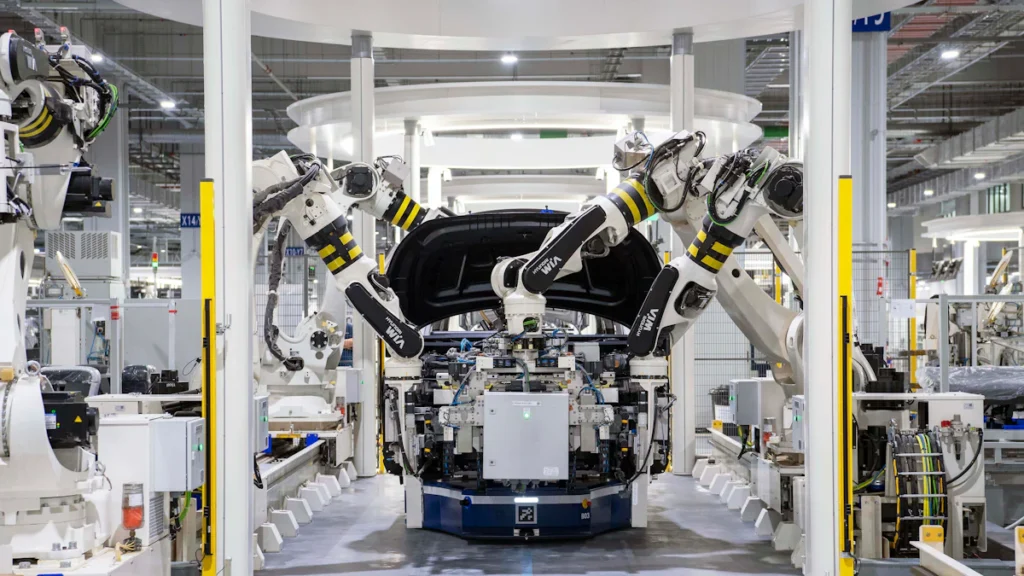
Industrial Applications
Automotive Industry
The automotive industry relies heavily on Plastics Extruder machines for producing various components. Plastics Extruder machines manufacture parts such as bumpers, dashboards, and interior panels. These machines ensure high precision and consistency in production. The use of Plastics Extruder machines enhances the durability and performance of automotive parts. The automotive sector benefits from the cost-effectiveness and efficiency of extrusion technology.
Packaging Industry
The packaging industry extensively uses Plastics Extruder machines to create a wide range of products. Plastics Extruder machines produce films, sheets, and containers used in packaging. These machines enable the production of lightweight and durable packaging materials. The flexibility of Plastics Extruder machines allows for customization in design and size. The packaging industry values the high-speed production capabilities of extrusion technology.
Construction Industry
The construction industry utilizes Plastics Extruder machines for manufacturing essential building materials. Plastics Extruder machines produce pipes, window frames, and insulation materials. These machines ensure the structural integrity and longevity of construction components. The versatility of Plastics Extruder machines supports the creation of various profiles and shapes. The construction sector benefits from the bulk production advantage of extrusion technology.
Consumer Products
Household Items
Plastics Extruder machines play a vital role in producing household items. Plastics Extruder machines manufacture products such as kitchenware, storage containers, and furniture components. These machines provide high-quality and durable household goods. The efficiency of Plastics Extruder machines ensures cost-effective production. Consumers appreciate the variety and reliability of extruded plastic products.
Toys and Gadgets
The toy and gadget industry depends on Plastics Extruder machines for creating innovative products. Plastics Extruder machines produce toys, electronic casings, and accessories. These machines offer precision and consistency in manufacturing intricate designs. The flexibility of Plastics Extruder machines allows for the production of diverse and appealing items. The toy and gadget sector benefits from the excellent production quality of extrusion technology.
Advantages and Disadvantages
Advantages of Using Plastic Extruder Machines
Efficiency
Plastics Extruder machines offer unparalleled efficiency in manufacturing. These machines operate continuously, allowing for high-speed production. Manufacturers can produce large quantities of plastic products in a short time. This efficiency reduces production costs and increases profitability. The ability to run 24-hour production cycles further enhances productivity.
Versatility
Plastics Extruder machines provide remarkable versatility. These machines can process a wide range of plastic materials. Manufacturers can produce various profiles, including tubes, sheets, and films. The flexibility in design and customization meets diverse industry needs. Plastics Extruder machines support the creation of complex shapes and intricate designs.
Cost-Effectiveness
Plastics Extruder machines are cost-effective solutions for manufacturing. The continuous operation minimizes raw material waste. Lower disposal costs result from efficient material usage. Plastics Extruder machines reduce inventory shortages by maintaining a steady production flow. The initial investment pays off quickly due to the high return on investment.
Disadvantages and Challenges
Initial Investment
The initial investment in Plastics Extruder machines can be substantial. High-quality machines require significant capital outlay. Small businesses may find the upfront cost challenging. However, the long-term benefits often justify the initial expense. Proper financial planning can mitigate the impact of this investment.
Maintenance Requirements
Plastics Extruder machines demand regular maintenance. Routine checks ensure optimal performance and longevity. Maintenance includes cleaning, lubrication, and part replacement. Neglecting maintenance can lead to machine breakdowns and production delays. Investing in skilled technicians can help maintain the machines efficiently.
Environmental Concerns
Environmental concerns arise with the use of Plastics Extruder machines. The extrusion process consumes significant energy. Plastic waste generated during production poses environmental risks. Manufacturers must adopt sustainable practices to mitigate these issues. Recycling and energy-efficient technologies can reduce the environmental footprint.
Plastics Extruder machines have revolutionized manufacturing by providing efficiency, versatility, and cost-effectiveness. The Plastics Extrusion machine process enables the production of high-quality plastic products across various industries, from automotive to household goods.Future trends indicate a shift towards sustainable and eco-friendly Plastics Extrusion machines. Innovations in recycled and bio-based materials will drive demand for advanced Plastics Extruder machines. The market will continue to grow due to the increasing need for high-quality plastic products.The importance of Plastics Extruder machines in manufacturing cannot be overstated. These machines offer unparalleled benefits, making them indispensable in modern production processes.


